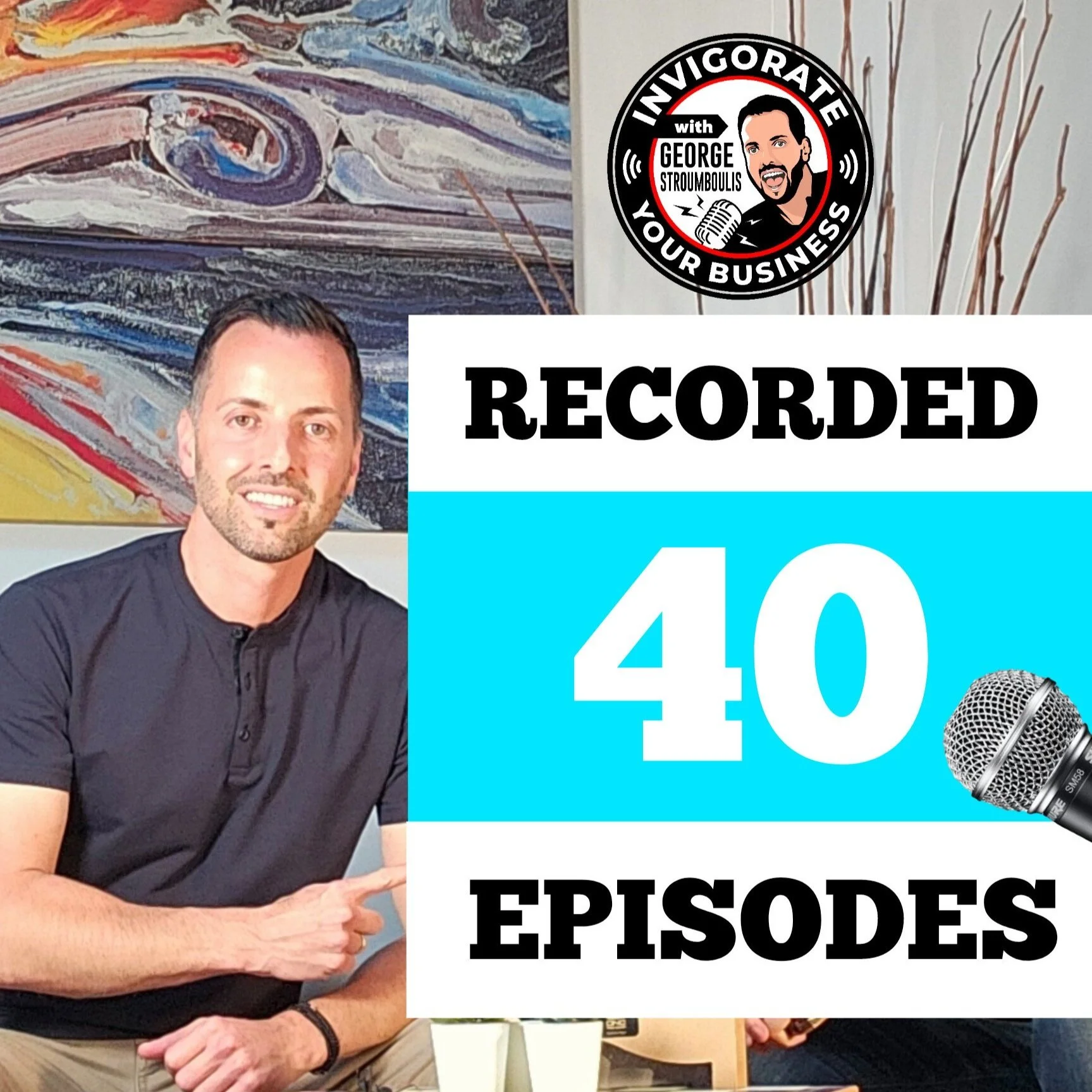ADVICE: SHUT UP, LISTEN AND LEARN - YOUTH NEED TO STOP WITH FALSE CONFIDENCE
“my advice is, and I always say this to my kids, listen more, talk less. Because you are going to learn.”
Shut Up, Listen & Learn!
First, shut the "F" up. Right. I see a lot of kids today thinking they are business influencers, and they try to exude fake confidence socially. And they think that I know this and I am a boss man. You are a teenager or in your early twenties, you haven't done anything. Just be quiet. Grasp on and learn. It's not about the money. Find that free internship. Listen. Follow.
Reach out to Tony and say, "Hey Tony, can I come with you to an island and help charging batteries on your cameras?" Just shadow if that's what someone wants to do. "Hey, can I come in?" We are losing that, just people being humble to learn because everyone wants to be a boss. So, my advice is, and I always say this to my kids, listen more, talk less. Because you are going to learn.
INVIGORATE YOUR BUSINESS WITH GEORGE STROUMBOULIS PODCAST
The Invigorate Your Business with George Stroumboulis podcast features casual conversations and personal interviews with business leaders in their respective fields of expertise. Crossing several industry types and personal backgrounds, George sits down with inspiring people to discuss their business, how they got into that business, their path to the top of their game and the trials and tribulations experienced along the way. We want you to get inspired, motivated, and then apply any advice to your personal and professional lives. If there is at least one piece of advice that resonates with you after listening, then this podcast is a success. New episodes weekly. Stream the show on Spotify, YouTube, Apple, Amazon and all other platforms.
Shut up, listen and learn.
Why is it sometimes better to listen than talk
Listening is often considered a valuable skill in various contexts, and there are several reasons why it can be better to listen than to talk:
Understanding: When you listen, you gain a better understanding of the information being shared. This understanding can help you make informed decisions and respond more effectively.
Learning: Listening allows you to learn from others' experiences, knowledge, and perspectives. It's an opportunity to expand your own knowledge base and gain insights you might not have considered.
Empathy: Active listening promotes empathy and understanding. By paying attention to others' thoughts and feelings, you can connect on a deeper level and build stronger relationships.
Effective Communication: Listening is a crucial component of effective communication. When you understand others' points of view, you can communicate more clearly and address their concerns appropriately.
Building Relationships: People appreciate when they feel heard. By actively listening, you show respect for others and contribute to building positive relationships based on mutual trust and respect.
Conflict Resolution: In situations of disagreement or conflict, listening can help defuse tension. By understanding the other party's perspective, you're better equipped to find common ground and resolve issues more amicably.
Gaining Insight: Listening to feedback, suggestions, and criticisms can provide valuable insights into areas where you can improve personally or professionally.
Avoiding Misunderstandings: Misunderstandings often arise from miscommunication. By actively listening and seeking clarification, you can reduce the likelihood of misinterpreting information.
Showing Respect: Listening is a form of respect. When you genuinely listen to someone, you show that their thoughts and opinions matter to you.
Encouraging Openness: Being a good listener encourages others to open up and share their thoughts. This can lead to more meaningful conversations and exchanges of ideas.
Effective Problem Solving: When you listen to various perspectives and ideas, you can gather a range of solutions to a problem, enabling you to make more informed decisions.
Cultivating Patience: Listening requires patience and self-control, as it involves giving others the time and space to express themselves fully.
It's important to note that effective communication involves a balance between speaking and listening. Both skills are valuable in different situations. In conversations, being an active listener and a thoughtful speaker can contribute to more meaningful interactions and productive outcomes.
Does the younger generation think they are more established than they are?
Some arguments suggest that younger generations, such as Millennials and Generation Z, may sometimes exhibit traits that could be interpreted as a sense of being more established or confident than their actual experience might warrant. Here are a few factors to consider:
Confidence vs. Experience: Younger generations may appear confident and assertive due to growing up in a world that encourages self-expression and independence. However, this confidence can sometimes be misunderstood as arrogance or overestimation of their abilities.
Technology and Information Access: Younger generations have grown up with easy access to information and technology, which can contribute to a perception of being well-informed and capable. This access can lead to a quicker grasp of new concepts and ideas.
Entrepreneurial Spirit: Many young individuals today are drawn to entrepreneurship and creative pursuits. Their willingness to take risks and pursue non-traditional paths can sometimes be seen as a belief in their own potential for success.
Changing Job Landscape: Younger generations often navigate a changing job market characterized by gig work, freelancing, and remote opportunities. This requires adaptability and confidence to create their own opportunities.
Ambition and Aspirations: As with any generation, young people often have ambitious goals and aspirations. These aspirations can contribute to a strong belief in their potential for achievement.
Social Media Influence: Social media platforms can amplify the perception of success and achievement, potentially contributing to the idea that others are more established than they actually are.
Cultural Shifts: Changes in cultural values and norms can influence how young people perceive themselves and their roles in society. Embracing these changes may lead to a perception of being more established.
It's worth noting that every generation has gone through phases where older generations perceived them as overconfident or inexperienced. As individuals gain more life experience and face challenges, their perspective often evolves. It's also important to recognize that individual personalities, upbringing, education, and various life experiences all play significant roles in shaping people's attitudes and behaviors.





















